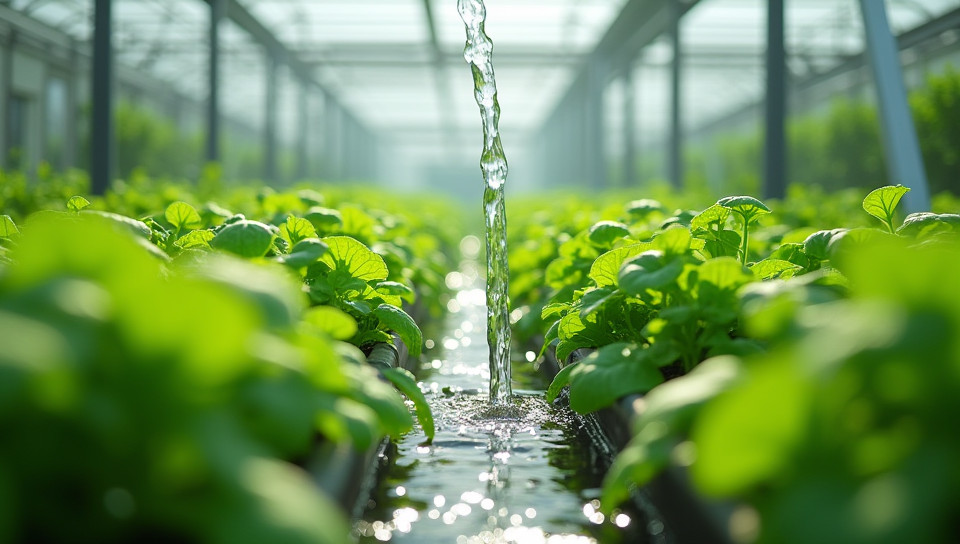Water usage in hydroponics is more controlled 71%

Water Usage in Hydroponics: A More Efficient and Sustainable Approach
As the world grapples with the challenges of climate change, water scarcity, and food security, innovative farming methods are becoming increasingly important. One such method that has gained significant attention is hydroponics, a soilless cultivation technique that uses nutrient-rich water rather than soil to grow plants. Hydroponics offers several advantages over traditional agriculture, but one of its most significant benefits lies in its controlled water usage.
Benefits of Controlled Water Usage in Hydroponics
Hydroponics allows for precise control over the amount of water used in plant growth. This is achieved through a closed-loop system where water is recirculated and reused multiple times, minimizing waste and reducing the overall water footprint of the operation.
- Water can be measured and controlled at each stage of the cultivation process.
- Nutrient levels can be adjusted in real-time to meet the specific needs of each plant.
- Excess water can be harvested and reused, reducing wastewater generation.
- Plants are grown in a controlled environment, minimizing evapotranspiration and runoff.
How Hydroponics Achieves Controlled Water Usage
Hydroponics uses a variety of techniques to conserve water and reduce waste. One such technique is the use of recirculating systems, where water is continuously cycled through the system, minimizing losses and reducing the need for fresh water intake.
- Recirculating Aquaculture Systems (RAS): In RAS, water is constantly recycled and reused, eliminating the need for external water sources.
- NFT (Nutrient Film Technique) Systems: NFT systems use a continuous flow of nutrient-rich water to feed plants, minimizing waste and reducing water consumption.
- DWC (Deep Water Culture) Systems: DWC systems suspend plant roots in a solution of nutrients, allowing for precise control over the amount of water used.
Conclusion
Hydroponics offers a more controlled approach to water usage compared to traditional agriculture. By using recirculating systems, measuring and controlling water intake at each stage of cultivation, and adjusting nutrient levels in real-time, hydroponics minimizes waste and reduces its overall water footprint. As the world continues to face challenges related to climate change, food security, and water scarcity, innovative farming methods like hydroponics are essential for a more sustainable future.
- Created by: Thiago Castillo
- Created at: Feb. 1, 2025, 3:58 p.m.
- ID: 19884

